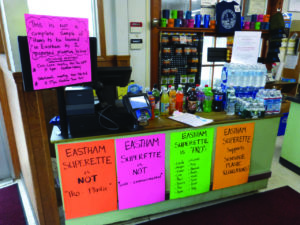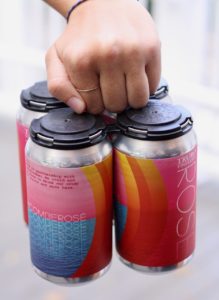PROVINCETOWN — The annual town meeting is unlikely to take place on its scheduled date, Monday, April 6. Gov. Charlie Baker issued an emergency order on Sunday limiting gatherings to fewer than 25 people — an effort to slow the spread of coronavirus.
Technically, town meetings are exempt from the order, but legislation proposed by the governor outlines a path to delaying them. Town moderators would be able to order a 30-day delay, and select boards could postpone them even longer — past the start of the new fiscal year on July 1. Towns could spend money at the prior year’s budget level until town meeting authorized a new budget.
If approved, this framework, and the continuing danger to public health, could mean putting off annual town meetings until well into the summer.
Town Manager Robin Craver said on Tuesday that she will recommend that the select board “cancel” town meeting for now, while the state works on options for maintaining municipal government and services.
When town meeting does eventually come, Provincetown voters will be faced with decisions about Harbor Hill’s finances, a plastic water-bottle ban, an eminent domain taking for the Ryder Street dune, and a change to the off-leash laws on Provincetown’s beaches.
Paying for Harbor Hill
Two articles on Harbor Hill’s finances will generate discussion. The first, an immediate spending authorization on a special town meeting warrant, allocates $100,000 to the completion of the renovation and construction work at the property, which the town voted to purchase in 2017. The second, Article 9 of the annual town meeting, calls for $595,000 from the general fund to be used for the bond payment on the project.
In a joint meeting of the select board and finance committee on March 9, Craver introduced the articles and explained her reasoning. The $10.7 million that the town voted for in 2017 was not an expenditure of cash, said Craver — it was a vote to authorize debt.
“When people talk about the debt service like it’s a subsidy, or an addition, they’re counting it twice,” she said. “That $595,000 is your mortgage, basically. This doesn’t go away; it’s not like you’re throwing $595,000 to the wind. You’re actually investing in a property, and at any point you’ll be able to sell it.”
“It appears to me the rents will be able to cover the operating costs, which they should,” Craver continued. “You will be paying your debt service, which you should. The town owns it. I know there’s been conversations about what other options you might have, such as public-private partnerships, selling some of the portions off, condo-ing it — this also gives you an opportunity to do that.”
Finance Committee Member Mark Del Franco noted that the project was originally pitched as nearly paying for itself and requiring only around $175,000 a year from the town. At that time, the expansion of the rooms tax to short-term rentals had been seen as a source of funds. Craver recommended against using that tax or the new marijuana tax to pay for Harbor Hill, though.
Ryder Street Dune
Another article seeks authorization to purchase or take by eminent domain a series of easements along the harbor between Ryder and Gosnold streets. This stretch of beach was the pathway for devastating coastal flooding in January 2018. The town wants to build a seven-foot dune to prevent the area from flooding again.
“We have learned that to qualify for grants to cover the construction work, we have to show that we have a continuing legal right to maintain the dune,” Conservation Agent Tim Famulare told the select board in January. “Permission or consent from the underlying property owners is not sufficient. We will need easements that give the town permanent access privileges.”
The cost of the easements is not yet known.
Plastic Water Bottle Ban
A petitioned article from Ted Jones and the environmental action group Sustainable Practices would ban the sale of water in single-use plastic bottles of less than one gallon. Sale of water in aluminum cans, cardboard cartons, and glass bottles would still be allowed, as would soda water and sweetened drinks of all kinds. This same bylaw will be on the town meeting warrant in 11 of the 15 towns on the Cape this year, and its advocates were hoping that Provincetown’s meeting would give them an early and trendsetting win.
“About 60 percent of the single-use plastic bottle market is for plain water,” said Madhavi Venkatesan, executive director of Sustainable Practices. “Hardly any of them are recycled. Recycling rates are much higher for aluminum cans, and of course reusable bottles filled from the tap are even better.”
Changes to Off-leash Rules
An article brought by the animal welfare committee would change the times that dogs can be off leash on town beaches. Currently it’s from 6 a.m. to 9 p.m. for seven months of the year. From Memorial Day to Nov. 1, they can be off leash from 6 a.m. to 9 a.m. and 6 p.m. to 9 p.m.
The article would apply the summer rules to the whole year.



